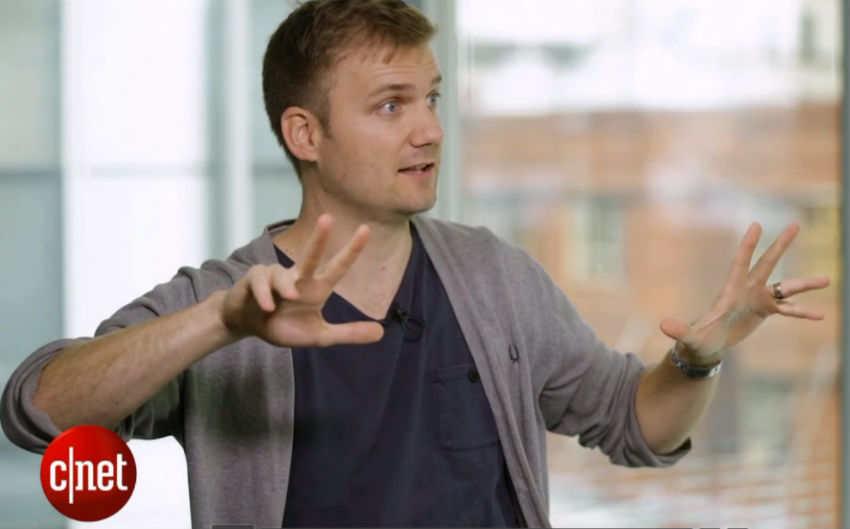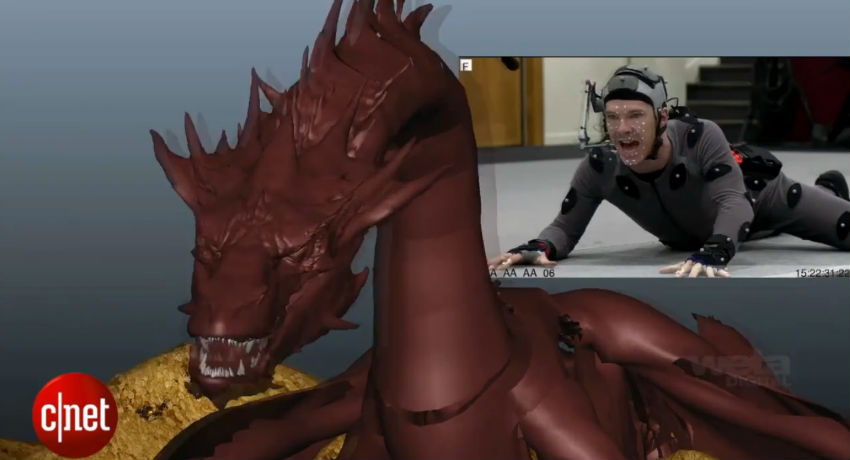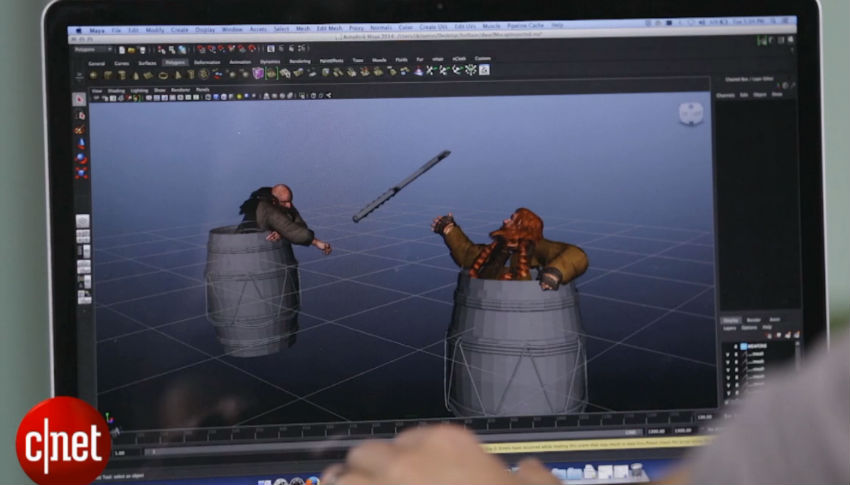
Weta Digital Animation Supervisor Dave Clayton describes the evolution of Smaug’s design to CNET’s Nic Healey. Photo credit: CNET.
Nic Healey of CNET Australia recently sat down with Dave Clayton, Animation Supervisor at Weta Digital. In the video interview, Clayton shared a number of fascinating tidbits about some of the Oscar-nominated visual effects in The Hobbit: The Desolation of Smaug.
Clayton talked about the process of creating some of the animations for The Hobbit films, including the hottest animation of all, the great dragon Smaug. Clayton shared a particularly interesting revelation about the evolution of the dragon’s design. Although actor Benedict Cumberbatch’s motion capture performance was not used to directly generate the dragon’s movement or appearance, the performance “informed” director Peter Jackson’s decision to change Smaug’s design from a typical dragon (four legs plus wings) to the final design that more closely resembled a fell beast ( as seen in The Lord of the Rings films) or a bat.

Benedict Cumberbatch’s motion capture work for Smaug informed the evolution of the dragon’s design. Photo credit: Weta Digital, via CNET.
The barrel escape scene from The Hobbit: The Desolation of Smaug was another topic in the interview. Clayton shared the sequence of steps required to produce the elaborate “monster shot,” from motion capture with performers in wheeled barrel substitutes to the final render that was seen in the film. Each step of the process is painstaking, requiring much tweaking to get the desired look and details for each frame.

Animation sequences such as the barrel escape scene in ‘The Hobbit: The Desolation of Smaug’ require multiple steps with painstaking attention to detail in each phase. Photo credit: Weta Digital, via CNET.
Clayton said that despite the huge advances in technology in his eleven years at Weta Digital, his fundamental work process for animation has remained largely the same. Clayton says that it is rewarding to see the animation “brought to life even further by beautiful rendering” as that technology has advanced in “leaps and bounds” over the last decade.
Here are some recent Middle-earth News stories about the visual effects in ‘The Hobbit’ films:
Weta Digital on Virtual Cinematography
Weta Digital on Creating Laketown — VIDEO
Deep Compositing: A VFX Method Whose Time Has Come


